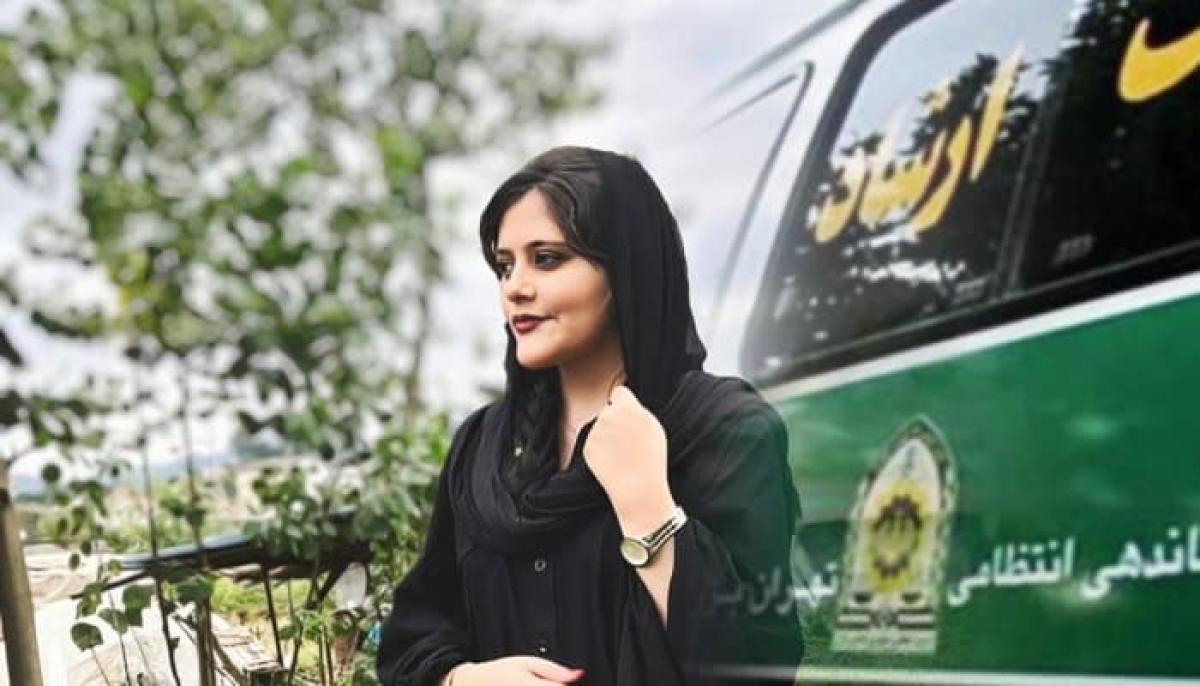Proteste im Iran nach Tod von junger Kurdin

Mahsa Amini, Bildquelle: NCR-Iran
Weil sie ihren Hijab nicht ordnungsgemäß getragen haben soll, wurde die iranische Kurdin Mahsa Amini von der Sittenpolizei geschlagen und verstarb an den Folgen der Misshandlungen. Nach ihrem Begräbnis brachen Proteste aus.
Das Regime in Teheran macht mit seinen Drohungen, die Kopftuchpflicht für Frauen rigoros durchsetzen zu wollen, ernst. Das jüngste Opfer dieser Repression ist die 22 jährige aus Kurdistan stammende Mahsa Amin:
Demonstrators initially gathered outside Kasra hospital in Tehran, where Amini was being treated. Human rights groups reported that security forces deployed pepper spray against protesters and that several were arrested.
Amini’s body was then transported to her native province of Kurdistan for burial, which took place on the morning of 17 September.
“The security institutions forced the Amini family to hold the funeral without any ceremony to prevent tensions,” said Soma Rostami from Hengaw, a Kurdish human rights organisation.
Despite the warnings, hundreds of people have reportedly gathered in Amini’s home town of Saqqez for the burial. Some shouted anti-government slogans such as “death to the dictator”.
Kurdish civil society organisations have called for a general strike in all of Kurdistan.
Videos of protesters in Saqqez tearing down posters of Iran’s authoritarian leader, Ayatollah Khamenei, have spread across social media.
Amini was visiting Tehran with her family on 13 September when she was arrested by morality police for allegedly violating the country’s strict hijab law. Her family were told she would be released from the police station after a “re-education session”.
Witnesses reported that Amini was beaten in the detention van, an allegation the police deny.
The police maintain that Amini suffered a heart attack, an account of events that is not accepted by Amini’s family.
The news of Amini’s death comes amid a crackdown on women’s rights orchestrated by the country’s president, Ebrahim Raisi.
As during previous protests, the Iranian authorities appear to have restricted internet access.